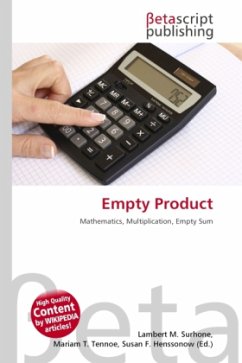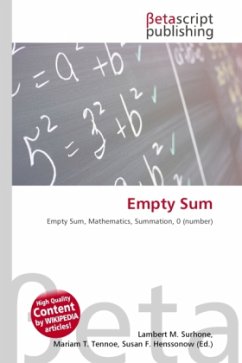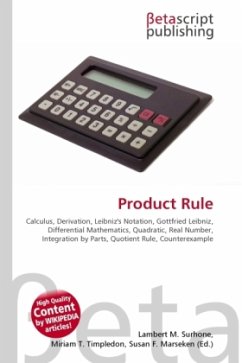High Quality Content by WIKIPEDIA articles! In mathematics, an empty product, or nullary product, is the result of multiplying no numbers. When a mathematical recipe says "multiply all the numbers in this list", and the list contains, say, 2, 3, 2 and 4, we multiply first the first number by the second, then the result by the third, and so on until the end of the list, so the product of (2,3,2,4) would be 48. If the list contains only one number, so that we cannot multiply first by second, common convention holds that the 'product of all' is that same number, and if the list has no numbers at all, the 'product of all' is often conventionally considered to be 1 (not zero). This 1 is called the 'nullary product'.
Bitte wählen Sie Ihr Anliegen aus.
Rechnungen
Retourenschein anfordern
Bestellstatus
Storno








